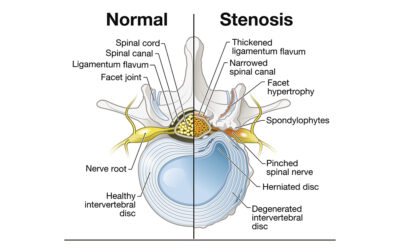THURSDAY, Oct. 4, 2018 (HealthDay News) — Vitamin D supplements have long been touted as a way to improve bone health and possibly ward off the bone-thinning disease osteoporosis in older adults.
But a new study contends that claims of benefits from supplements of the “sunshine vitamin” fall flat.
A review of previously published studies found that taking either high or low doses of vitamin D supplements didn’t prevent fractures or falls, or improve bone density.
Vitamin D is found in very few foods. One of the biggest sources of the vitamin is exposure to sunlight.
“Vitamin D supplement use is common, particularly in North America,” where up to 40 percent of older people take them, said lead researcher Dr. Alison Avenell. She is clinical chair in health services research at the University of Aberdeen in Scotland.
“Most adults don’t need to take vitamin D supplements, although they are unlikely to do harm if taken in low doses,” she added.
Vitamin D supplements do prevent rare conditions, such as rickets in children and osteomalacia (softening of bones) in adults. People at risk of vitamin D deficiency include those with little or no sun exposure, such as nursing home residents who are indoors all the time, or those who always cover their skin when outside, Avenell said.
There’s also existing evidence that vitamin D helps prevent cancer or heart disease, she added.
“Preserving bone strength involves keeping active, not smoking, not being too thin, and taking medications for osteoporosis,” Avenell said.
Based on the new findings, Avenell thinks guidelines that recommend vitamin D supplements for bone health should be changed.
For the new report, Avenell and her colleagues reviewed 81 studies, most of which dealt with vitamin D alone, not in combination with the mineral calcium.
“Calcium supplements on their own have minimal effect on bone mineral density and fracture, and may increase the risk of cardiovascular disease,” Avenell said.
The only evidence that calcium and vitamin D together prevent fractures comes from a trial of older people with very low vitamin D levels in nursing homes. But calcium and vitamin D may also increase the risk of cardiovascular disease, Avenell said.
In addition, most of the studies covered in the new review included women aged 65 and older who took more than 800 IUs (international units) of vitamin D daily.
The new study found no meaningful effect of vitamin D supplementation when it came to reducing any fracture, hip fractures or falls.
This type of study, called a meta-analysis, tries to find common elements among previously published studies. This kind or research, however, is limited by differences in the methods and conclusions of the different studies analyzed by researchers, so the findings may not be consistent across the board.
Dr. Minisha Sood, an endocrinologist at Lenox Hill Hospital in New York City, said this new study should convince doctors that vitamin D supplements don’t have a role in maintaining healthy bones, but they do have other benefits.
Previous research suggests that vitamin D, when taken in tandem with calcium, may help prevent certain cancers and protect against age-related declines in thinking and memory.
“What is important to keep in mind is that those with low vitamin D were not represented in this meta-analysis, and vitamin D supplementation — repletion, actually — is still necessary for those with low vitamin D levels, regardless of age,” Sood said.
The findings were published online Oct. 4 in The Lancet Diabetes and Endocrinology.
More information
For more on vitamin D, visit the U.S. National Institutes of Health.
SOURCES: Alison Avenell, M.D., clinical chair, health services research, University of Aberdeen, Scotland; Minisha Sood, M.D., endocrinologist, Lenox Hill Hospital, New York City; Oct. 4, 2018, The Lancet Diabetes and Endocrinology, online



